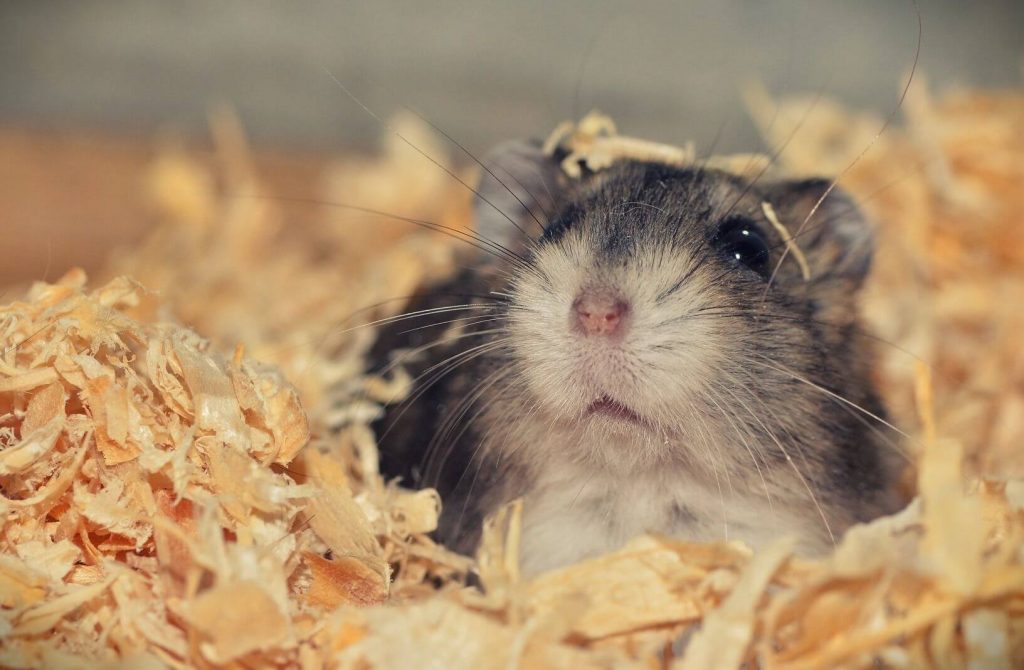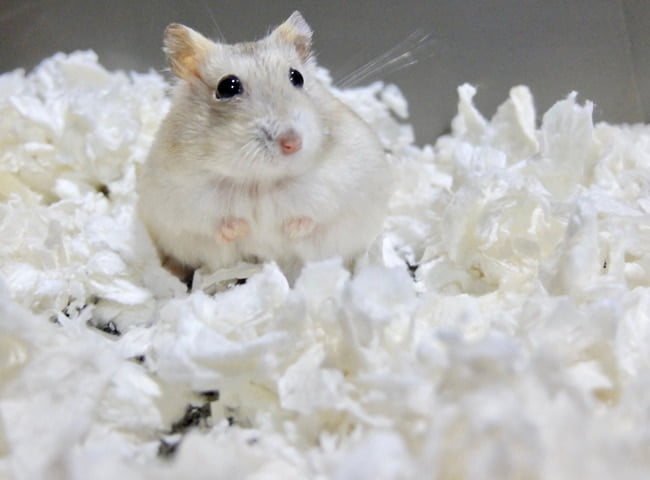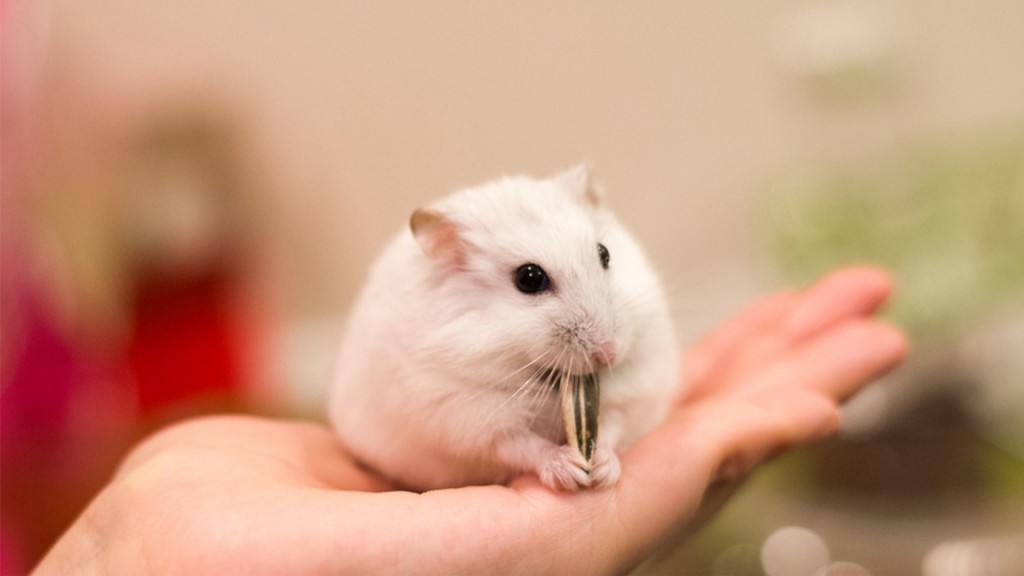5 Ways to Handle When a Hamster is Stressed Stress

What are the signs that the hamster is under stress, is there a case where the hamster can die? Stress has an effect on the lifespan of hamsters . In this article, we'll shed light on how you can detect if your pet is stressed and what you can do to help calm it down and prolong its life.
How do you know a hamster is stressed?
Every time a hamster is stressed, it will behave differently. That's why it's important to be aware of sudden changes in your hamster's behavior and even appearance. Here are some typical symptoms to help you diagnose your hamster is stressed.

- Hyperactivity: Have you noticed your hamster is unusually hyperactive? Do they move constantly, run on wheels much faster and frantically climb cages? If yes, then your pet is showing signs of stress.
- Ferocious: Stress is one of the reasons why your hamster is aggressive. They growl, bared their teeth as if to bite, and their ears move back are all signs that your pet is ready to attack.
- Bite the cage: Although chewing hamsters often chew a lot, a hamster biting the cage can also be a sign of stress. Other types of abnormal behavior are constant scratching, chewing too much, and constantly cleaning the body to the point where it feels like they are scratching their own skin. It is easy to tell if a hamster is stressed. Have you heard your hamster squeak or snort? If so, chances are your hamster is stressed.
- Feathers: Chronic stress or prolonged stress in a hamster leads to physical changes such as hair loss. Also, if you can see it scratching or plucking, your hamster is definitely under stress.
- Wet tail: Proliferative ileitis is another term for wet tail. When baby hamsters are moved from the breeder's house to the pet store and then to your home, it is very likely that the hamster will be stressed. In addition to environmental changes, other factors can also cause hamsters stress such as changes in diet, separation of them from their flock are also possible causes of stress. This disease creates conditions for Campylobacter bacteria to multiply, causing diarrhea, coma, discharge from the ears and genitals. Wet tails are highly contagious, so if you keep multiple hamsters in one cage, separate them out for days if you don't want them all to get sick.
- Find a way to escape from the cage: Other signs of stress to look out for are wanting to get out of the cage, muscle tremors, and excessive salivation.
5 Tips to Soothe When Your Hamster is Stressed:
If you are sure that your hamster is under stress, leave it alone for a while to allow it to settle down and calm down. In addition, it is most important that you provide your hamster with basic care and medication to get it balanced. Here's how to help reduce stress for your hamster.

1. Enrich the surroundings
Feeling bored will make you stressed, so a stressed hamster can also be too bored so enriching the hamster's habitat will help relieve stress for the hamster. .
How to enrich the hamster's habitat? Provide your hamster with a number of toys for mental and physical stimulation. Since you are not always available to play with them, your hamster needs items to keep them entertained such as wheels, balls, play tubes, etc.
In the wild, hamsters dig tunnels for shelter and rest. Providing them with tunnel toys and digging towers for hamsters is best.
2. Build close relationships
If you have a new hamster, to reduce stress in your hamster, get to know it carefully and slowly. Reward it with gifts to encourage it to come to you. Once your hamster gets used to being in your care, make time for it every day so you can both form a bond.
When your hamster also needs to feel that you are a part of their life, surely the hamster will not be stressed anymore. An important note to get used to and reduce the possibility of hamster stress is that you should choose a fixed time to play with it, so it will quickly create good habits for the hamster as well as the relationship. side will be easier to develop.
3. Provide preventive medicine
Illness also causes stress in hamsters. For example, wet tail disease is a life-threatening condition in hamsters. If you don't deal with a wet hamster's tail within 24-48 hours, your hamster will die.
The best way to prevent wet-tailed hamster disease is to avoid keeping your hamster in a cage. And, when bringing it home, avoid catching or playing with it too much until it gets used to you and its new environment.
In case the hamster has a wet tail, it is necessary to give medicine immediately to avoid serious illness and isolate the sick hamster from other healthy ones.
4. Solve the behavior of the hamster biting the cage
In the case of hamsters suffering from stress due to the cage being too small, the simple solution is to buy a larger cage. Take the hamster out of the cage and let it roam freely for about 15-30 minutes. Note that you need to make sure that there are no cats around and other things that could hurt your hamster.
Taking your hamster outside to play at least three times a week is a good way to prevent your hamster from feeling stressed.
5. Put the hamster's cage in a quiet room
Just like you, when hamsters are stressed they want a safe and quiet place to rest. Otherwise, they will become more stressed and anxious.
The best place you can put a hamster cage is away from the living room. And, if you have other pets like dogs and cats, make sure they don't get close to the cage, or they can scare and stress your hamster.
If you have young children at home, tell them not to disturb the hamster, especially when the hamster is sleeping.
Summary

Stress in hamsters is normal, just like humans, no one can avoid stress. This is why you must know your hamster very well, that is the only way you can determine if there are changes in its behavior that could indicate stress.
If the hamster is not satisfied at any point, then fixing the hamster will reduce stress immediately. The secret to hamsters is not stressed, create a spacious living environment, have a play area, be comfortable to go out and always have the gentle love of their adoptive parents.